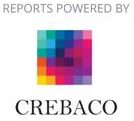
 Rad
Rad
Name
Rad
Summary
-Rad is an open source protocol, which enables P2P network for various collaborations
-It had its beta release in 2020 by Alexis Sellier and Eleftherios Diakomichalis
-Radicle’s code and Ethereum integration are publicly through the Radicle DAO and Treasury.
Rating
Symbol
RAD
Overview
Radicle is a decentralized code collaboration network built on open protocols. It enables developers to collaborate on code without relying on trusted intermediaries. Radicle was designed to provide similar functionality to centralized code collaboration platforms or "forges" while retaining Gits peer-to-peer nature, building on what made distributed version control so powerful in the first place.Radicle also leverages Ethereum (opt-in) for unique global names, decentralized organizations, and protocols that help maintainers sustain their open-source work.The network is powered by a peer-to-peer replication protocol built on Git, called Radicle Link. Radicle Link extends Git with peer-to-peer discovery by disseminating data via a process called gossip. That is, participants in the network share and spread data they are "interested" in by keeping redundant copies locally and sharing, otherwise known as "replicating", their local data with selected peers. By leveraging Git's smart transfer protocol, Radicle Link keeps Git's efficiency when it comes to data replication while offering global decentralized repository storage through the peer-to-peer networking layer.Since all data on the network is stored locally by peers on the network, developers can share and collaborate on Git repositories without relying on intermediaries such as hosted servers.The easiest way to use Radicle is with Upstream, a desktop client developed by the founding team of the Radicle project. With Upstream, you can create an identity, host your code, and collaborate with others on the Radicle network
Historical Price Movement (in INR)
Technology
The Radicle network is powered by Radicle Link, a replication protocol built on top of Git’s version control system, which allows peer-to-peer discovery and collaboration of Git repositories. The Radicle Upstream client is the gateway to using the protocol. Radicle also features an opt-in integration with Ethereum that allows users to link their Radicle Identity to an Ethereum address.
Radicle Link Operating on Directed Acyclic Graphs (DAGs), there are two types of identities in the Radicle Link protocol: participants (“peers”) and Git repositories (“projects”). The protocol disseminates data throughout the network via “gossip” replication. Peers select projects and other peers to track by “following” them. In doing so, peers keep local copies of all data associated with the projects and peers they follow and share (“replicate”) this data with other peers. As all data is stored locally by network peers, developers can collaborate on Git repositories without relying on centralized servers or organizations such as Gitlab or Github.
To ensure data availability across the network, seed nodes are always-on nodes that track and disseminate discovered projects. The only difference between a seed node and a regular node is that a seed node is not associated with an identity (peer or project). Stable seed nodes serve as entry points for new protocol users.
As opposed to centralized counterparts, Radicle Link uses public-key cryptography in place of user accounts `and a “bazaar” model for collaboration instead of a single canonical upstream. The network doesn't have a native consensus mechanism and as such, there isn't a singular view of reality. Peers may choose to unfollow peers, removing their data from their view of a project. An ownership proof is associated with a peer or set of peers such that repositories can be viewed and replicated in accordance to trust relationships between network participants.
Project initiators are known as “maintainers” and determine a repository’s working configurations. Maintainers may select project “delegators,” peers with permission to review and accept work submitted by other peers. A quorum of delegator public keys is required to incorporate project changes.
Radicle Upstream Available on Mac and Linux, Radicle Upstream is a desktop application enabling users to interact with the Radicle Network and participate in peer-to-peer code collaboration. Currently, it is the only client available to access the network.
Opt-In Ethereum Integration In 2021 Radicle released the ERC-20 RAD token and larger protocol integration with Ethereum. The Ethereum Registry anchors canonical project metadata, thereby making a project’s state immutable. The integration also allows users to opt-in to a variety of additional features:
Global Ethereum names: Associated with an Ethereum address (@@@.radicle.eth)
Funding Streams: Fund projects or donate to peers directly within Radicle using any ERC-20 token.
Decentralized Orgs: Define project permissions through smart contracts. Existing Ethereum DAOs and multi-sigs can link to a Radicle Org and decentralize their code collaboration.
Use of Native tokens in the ecosystem:
Founders Project
26.25%
Mined Rewards & Airdrop
50%
Investors
23.75%
Volume ( as of 10th May 2022)
$7,135,025
Total Supply
99,998,580 RAD
Circulating Supply
31,076,491.12 RAD
Crowd Sales
N.A.
Funding
18/0 2/ 2021-venture round-$12M
Country
N.A.
Year Incorporated
2018
Registered Address
N.A.
Dispute Resolution and Governing Law
N.A.
Country Risk Assessment
N.A.
Founding Team
| Name | Designation | Education | Experience |
| Eleftherios Diakomichalis | Co-Founder | Freie Universität BerlinDoctor of Philosophy (Ph.D.), Computer Science / Network ScienceAthens University of Economics and BusinessBSc, Statistics | 15.5Yrs |
| Alexis Sellier | Co-Founder | - | - |


 Rad
Rad












